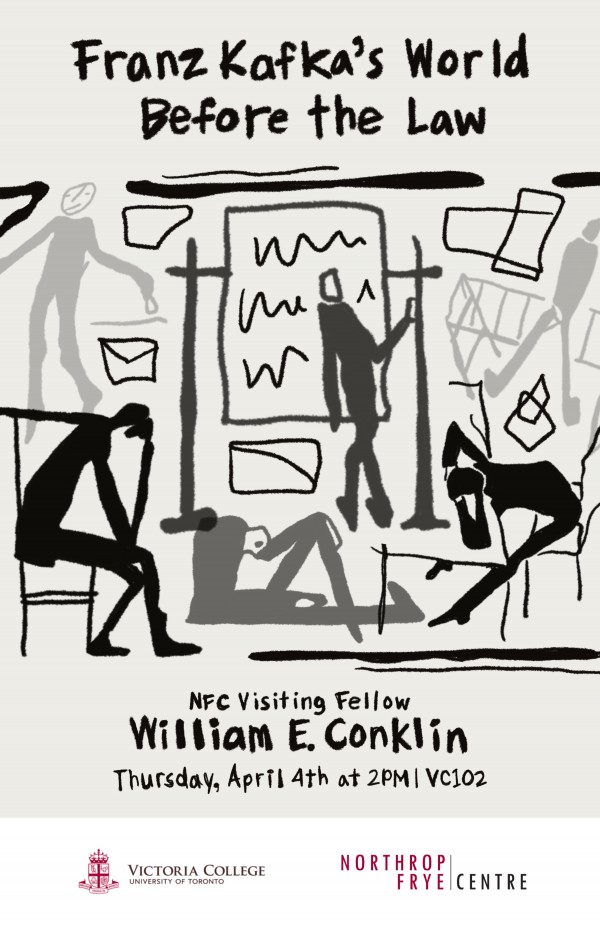Franz Kafka's World Before the Law | William E. Conklin
April 6, 2024 | 2 p.m.
Northrop Frye Centre (VC102)
91 Charles St West Toronto, ON M5S1K5

The NFC is pleased to invite you to a talk delivered by William E. Conklin, a Law Professor at the University of Windsor.
About the talk...
In his parable about a man from the country who seeks justice before the law, Franz Kafka, an insurance lawyer, describes how the man waits to be recognized by the legal officials before he can gain entrance to the Law. Alas, waiting indefinitely before the Law, the legal officials inside the Law never recognize the man, let alone the harm which generated his desire to access the Law. Instead, the doorway otherwise opened into the law is closed. Two boundaries separate the man from the Law, the one is the boundary of legal knowledge from inside the Law and the other is the boundary as conceived by the man. I shall focus upon the territorial-like space between the two boundaries of knowledge. I shall argue that such a space opens into a world before the Law. I shall suggest the nature of such a world.
About the speaker...
Elected as a Fellow of the Royal Society of Canada in 2014, William E. Conklin has authored seven books, co-edited two anthologies, was the chief editor for six volumes and the first editor-in-chief of the Windsor Yearbook of Access to Justice, and authored over 70 peer-reviewed articles. His recent research and publications are preoccupied with the study of legal experience and especially the experiential senses of law shared by communities excluded from the dominant formal and state-centric sense of law. Drawing heavily from Phenomenology, his examples pertain to de jure, diplomatic and effectively stateless peoples as well as nomadic and quasi-nomadic communities.
